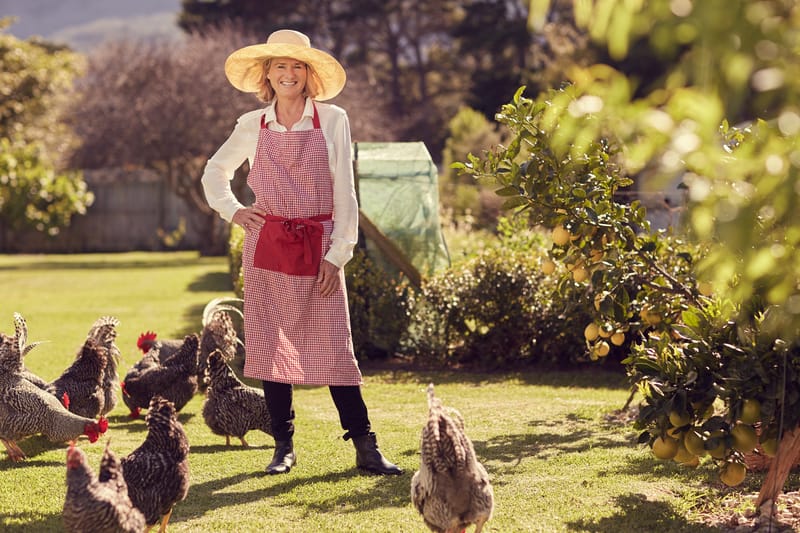This entry was posted on 23 December 2021 in Keeping Chickens.
There’s a lot to be said about a good egg. However, you may have noticed that some eggs have yellow yolks whilst others have a deep orange tone, and with this colour difference, you may have noticed a change in the taste, too.
As a chicken owner, you should be aiming for your chickens to be laying eggs with a rich orange yolk. Not only is a darker yolk more nutritious, but it’s also a sign of a healthy hen. Many factors can influence whether your chickens lay orange yolks or yellow ones, including chicken coops and diet.
To help you out, we’ve put together some top tips you can use to encourage your hens to lay rich, nutritious eggs that taste great and indicate good health for your birds. If your hens have been laying eggs with yellow yolks, keep reading to learn more about how you can change it for the better and help to produce better eggs that will enhance your cooking and baking, and improve the health of your hens.
One of the main things that can dictate the colour of a yolk is the lifestyle your chickens lead. Generally speaking, yellow yolks are produced by hens that don’t have a lot of room to roam in chicken runs. Battery cage hens often lay yellow yolks, whereas free-range chickens with improved lifestyles tend to lay far more orange yolks. This is a testament to how an improved lifestyle leads to improved egg yolks.
Here are some changes you can make to the lifestyle of your chickens to encourage them to lay orange egg yolks.
What your hens eat will have a direct impact on the quality and nutritional value of the eggs they produce. With this in mind, you should look to feed your hens a diet consisting of natural foods they would look to forage when left to roam free. This includes bugs and plants which are often absent from store-bought feed. Insects and plants have more nutritional value, resulting in a better diet for your hens and richer, orange yolks.
The darker the egg yolk, the more free-roaming the chickens are, the less cholesterol and saturated fat there is in the egg. There is also an increase in levels of beta carotene, omega-3 fatty acids, and vitamins D, A, and E. This means healthier hens and better eggs, resulting in an improved taste.
In addition to natural foods, you need to make sure your chickens are getting all the nutrients they need. A laying chicken should have a diet consisting of 2.7% oil/fat, 16% protein, 5.5% fibre, and 12.5% ash (calcium and other minerals). This may mean adding supplements to ensure they have everything they need to remain healthy and in good laying condition.
Scared hens are not happy when they’re stressed. Not only is stress bad for the wellbeing of your chickens, but it can impact their laying habits, too. You need to ensure their enclosure is safe from predators like foxes.
Chickens can struggle to regulate their body temperature. So in the summer and winter, you may need to step in and help. Providing extra warmth and insulation in winter will ensure they’re not adversely affected by freezing temperatures, but you also need to make sure they have an available reprieve from the harsh sun in summer by providing ample shade and cold water. This will ensure your chickens remain healthy and lay good quality eggs all year round.
Chickens need lots of leafy greens to get their required nutrients, so make sure you’re providing them with plenty of fresh vegetables. This will boost levels of lutein in the yolks of the eggs they produce, contributing to a rich orange colour that every chicken owner craves. You can feed your flock dark-leafed vegetables like kale, broccoli leaves, and even mustard greens.
As mentioned, stressed hens don’t produce good eggs, nor do they live a good quality of life. You’d be hard-pressed to find hens as stressed as those that get pecked by the others. To prevent pecking, you need to make sure your hens have adequate space to keep themselves entertained. A good option is to have an open compost pile that they can scratch through. This will keep their beaks in the ground and away from others, and it will also mean they’re able to find scraps of seeds and flowers, further contributing to bronze yolks.
Chickens that spend all their time in chicken coops without access to a run or an open space are not likely to be producing orange yolks. Instead, they’ll produce yellow yolks due to inactivity and a lack of foraging. When left to their own devices and given access to a healthy garden with plenty of leaves and foliage, hens will scratch and peck below the surface to find earwigs and worms, as well as slugs and centipedes.
These are vital for protein and encourage exercise amongst your flock. As well as a good space to free roam in, chickens also need to have a good amount of room to roost. Their environment needs to be safe and spacious, fostering feelings of comfort in the birds.

Our team provides a wide range of chicken coops and chicken runs designed to keep your birds happy and healthy. No matter the size of your flock or garden, we have an option that matches your requirements. Using our high-quality chicken coops and runs will encourage your hens to follow their instincts and keep active, resulting in richer, more orange egg yolks that are better for you and taste great while keeping your chickens healthy.
Get in touch with our team today, give us a call on 01273 978 487 or visit our contact page today to fill in an enquiry form.

« Why are My chickens Eating Their Own eggs?
Does your chicken coop need to be in the sun or in the shade? »